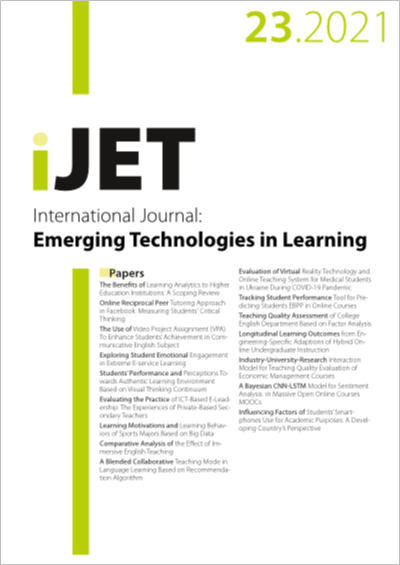A POA Theory-based Network Teaching Mode for English Course in Higher Vocational College
DOI:
https://doi.org/10.3991/ijet.v17i01.28459Keywords:
POA theory, network teaching, evaluation system, vocational EnglishAbstract
As the world economy develops quickly, more and more overseas-funded enterprises have swarmed into the markets of different countries. Therefore, English teaching is very essential because English is the main communication language. However, students in higher vocational colleges with poor English foundation, weak learning ability, and low enthusiasm and interest in English learning, seriously affecting students 'English practical ability and their employment. Despite the adoption of Internet information technology in some schools to carry out English teaching, the teaching content is limited to textbooks and instructed by single teaching methods, which is ineffective to improve students' English practical ability. In view of this, in order to enhance the English classroom teaching effect in higher vocational colleges, improve students’ English learning and practical ability, stimulate their interest in English learning and initiative, a POA (production-oriented approach) theory-based network teaching mode was introduced in this paper. Firstly, based on POA teaching theory, the application in English teaching in higher vocational college was analyzed, and then student independent learning evaluation system was designed using AHP. In order to promote students' autonomous learning, SPOC mode was also introduced to provide students with a wealth of learning resources. Practical teaching results have shown that the POA theory-based network teaching mode can yield significant effects on improving students’ English practical ability, stimulating students' interest and enthusiasm in English learning.
Downloads
Published
How to Cite
Issue
Section
License
Copyright (c) 2021 Jinrong Shu

This work is licensed under a Creative Commons Attribution 4.0 International License.



